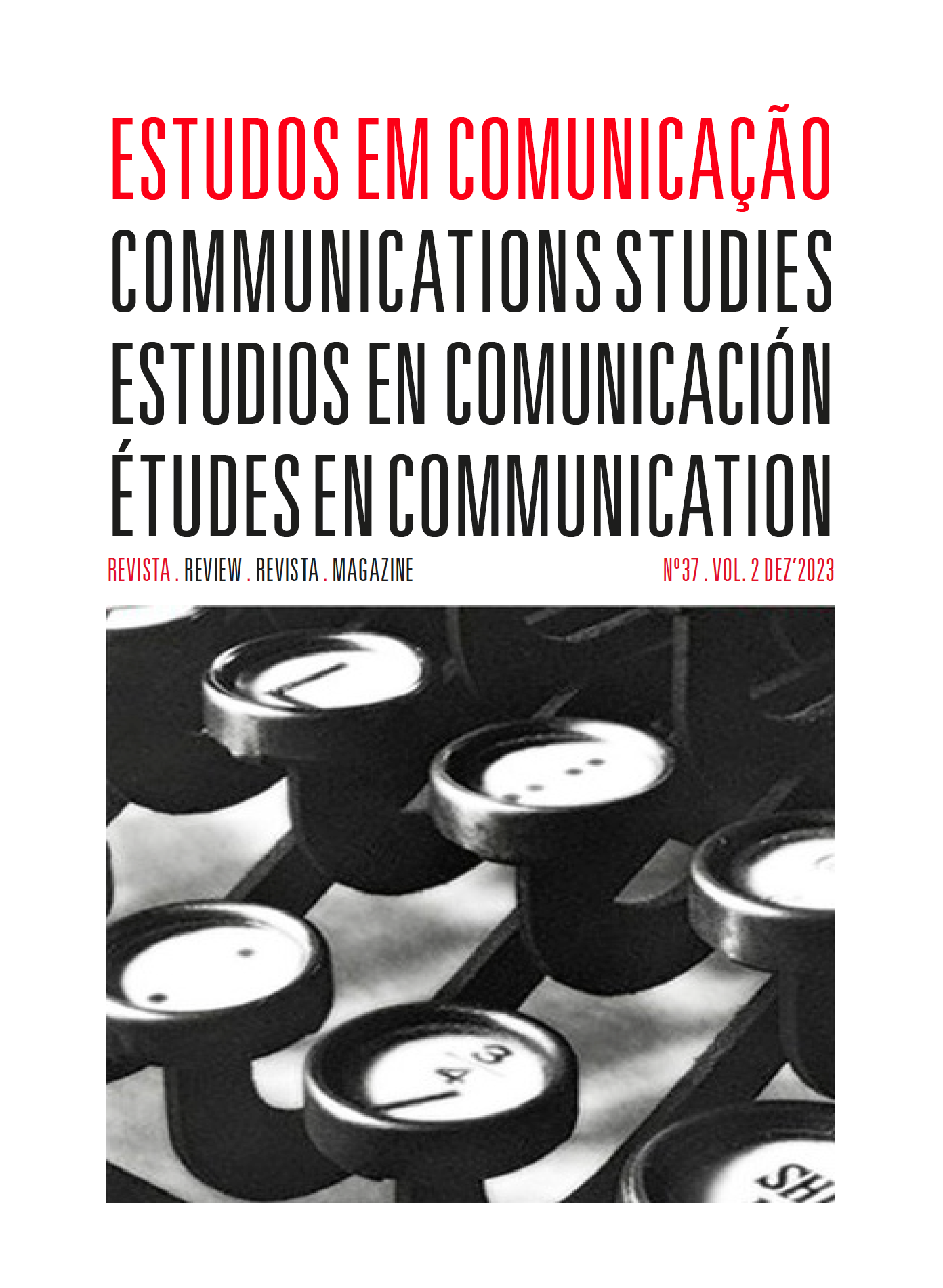On the modes of existence and resistance: how Brazilian indigenous-inspired thinking can forge a communication by equivocation
Palavras-chave:
Amerindian Perspectivism, anthropology, ontological turn, translation, communication by equivocationResumo
The disrespect for Brazilian indigenous peoples during the administration of President Jair Bolsonaro shows an ethnocentric look and reinforces the history of a country in which resist not only epistemologies, but a diversity of disputing ontologies. Here lies matrices of thought that enable the imagination of other possible worlds, both in the proposal of the Manifesto Antropófago, by the poet Oswald de Andrade, and in the work of the writer João Guimarães Rosa. What we propose is no longer to take the thoughts of original peoples as metaphors, but as analogues of concepts, taking seriously the possibility of building a translation of worlds inspired by the Yanomami shaman Davi Kopenawa, who alerts us, in his book-report, about the imminent fall of the sky, and the translation work of the indigenous Aílton Krenak, and his ideias to postpone the end of the world. It is from these points that we propose an approach that takes the process of mediation of the translation of shamanic worlds as a model for thinking about what we call communication by equivocation.
Referências
Andrade, O. de. O manifesto antropófago. In: Teles, G. M. (Org.) (1976). Vanguarda européia e modernismo brasileiro. (pp. 15-20). Petrópolis: Vozes.
Castro, A. (2021, April 13th) CPI da Covid é criada pelo Senado. Senado Federal. https://www12.senado.leg.br/noticias/materias/2021/04/13/senado-cria-cpi-da-covid
Corrêa, M. (2020, January 23th) “Cada vez mais, o índio é um ser humano igual a nós”, diz Bolsonaro. O Globo. https://oglobo.globo.com/brasil/cada-vez-mais-indio-um-ser-humano-
igual-nos-diz-bolsonaro-1-24208483
Cunha, M. C. da. (1998). Pontos de vista sobre a floresta amazônica: xamanismo e tradução. Mana, 4(1), pp. 7-23.
David-Bird. N. (1999). Animism Revisited: Personhood, Environment, and Relational Epistemology. Current Anthropology, 40, pp. 67-91.
Deleuze, G. (1992). Conversações: 1972 – 1990. Rio de Janeiro: Editora 34.
Descola, P. (2007). Outras naturezas, outras culturas. São Paulo: Editora 34.
Ker, J. (2020, November 1st). Pantanal e Amazônia registram recorde de queimadas em outubro. Portal Uol. https://noticias.uol.com.br/ultimas-noticias/agencia-estado/2020/11/01/pantanal-e-amazonia-registram-recorde-de-queimadas-em-outubro.htm
Kopenawa, D.; Albert, B. (2015) A queda do céu: palavras de um xamã yanomami. São Paulo: Companhia das Letras.
Krenak, A. (2019) Ideias para adiar o fim do mundo. São Paulo: Companhia das Letras.
Krenak, A. (2020). O amanhã não está à venda. São Paulo: Companhia das Letras.
Laia, E. J. M. (2019) “A comunicação pelo equívoco: anotações para uma teoria plana e em rede”. In: PRADO, J. A. B.; SATUF, I. (Org.) Comunicação em Ambiente Digital. (pp. 131-148). Covilhã: UBI Labcom. https://labcomca.ubi.pt/wp-content/uploads/2021/11/201906241348-
_prado_satuf_comunicacao_ambiente_digital.pdf
Laia, E. J. M. (2020). “O telefone celular na rede-jornalismo: o conceito de equívoco e a invenção de uma teoria diferenciante.” In: Revista Famecos, 27(1). https://doi.org/10.15448/1980-3729.2020.1.34549
Laia, E. J. M.; Guimarães, L. L. (2021) “O intempestivo na televisão: miudezas e torções na cobertura de protestos entre junhos.” In: Rocha, A. M.; Laia, E. J. M. (Org.). audiovisual revolucionário (pp. 341-366). São Paulo: Editora dos Frades.
Latour, B. (1994). Jamais fomos modernos. Rio de Janeiro: Editora 34.
Latour, B. (2005). Reassembling the social: an introduction to actor-network theory. Oxford: Oxford University Press.
Neto, F.; Laia, E. J. M. (2021) “A xawara e as notícias da TV: uma cartografia de equívocos sobre a cobertura da pandemia”. In: Anais Eletrônicos do 11o Encontro de Jovens Pesquisadores em Jornalismo. Campinas: Galoá. https://proceedings.science/jpjor-2021/papers/a-xawara-e-as-noticias-da-tv--uma-cartografia-de-equivocos-sobre-a-cobertura-da-pandemia
Rosa, J. G. Meu tio, o Iauaretê. In: Rosa, J. G. (1976) Estas Estórias. (pp. 49-65). Rio de Janeiro: José Olympio.
Taddei, Renzo. Jornalismos possíveis, mundos possíveis. [Interview granted to] Evandro Medeiros Laia e Lara Linhalis Guimarães. Série audiovisual Traduções, Youtube, episode 1, may 2020. Available at: youtube.com/jornalismos. Accessed: December 20th 2021.
United Nations. (2020, September 22th). Brazil - President Addresses General Debate, 75th Session. 22 September 2020. [Video]. Youtube.
https://www.youtube.com/watch?v=Xf_km4MRv1Q
Villaça, A. (2018) Paletó e eu: memórias de meu pai indígena. São Paulo: Todavia.
Viveiros de Castro, E. (2004). Perspectival Anthropology and the Method of Controlled Equivocation. Tipití, Journal of the Society for the Anthropology of Lowland South America, 2(1), pp. 2-22.
Viveiros de Castro, E. (2007) “O perspectivismo é a retomada da Antropofagia oswaldiana em novos termos”. In: Sztutman, R. (Org.) Coleção Encontros – Eduardo Viveiros de Castro. (pp. 122-135). Rio de Janeiro: Beco do Azougue.
Viveiros de Castro, E. (2015). Metafísicas canibais: elementos para uma antropologia pós-estrutural. São Paulo: Cosac Naify.
Downloads
Publicado
Edição
Secção
Licença

Este trabalho encontra-se publicado com aLicença Internacional Creative Commons Atribuição-NãoComercial-SemDerivações 3.0.
Estudos em Comunicação / Estudos de Comunicação é um jornal de Acesso Livre. Todos os seus conteúdos estão disponíveis gratuitamente, sem custo para o utilizador ou para a sua instituição. O utilizador pode ler, baixar, copiar, distribuir, imprimir, pesquisar ou vincular aos textos completos dos artigos nesta revista sem autorização prévia do editor ou do autor. Estudos de Comunicação, por LabCom.IFP, está licenciado sob uma Licença Creative Commons Atribuição-Não Comercial-NoDerivs 3.0 Unported. Ao enviar seu trabalho para estudos de comunicação / estudos de comunicação, você confirma ser o autor e que possui os direitos autorais, que o conteúdo é original e anteriormente inédito e que concorda com os termos de licenciamento.

